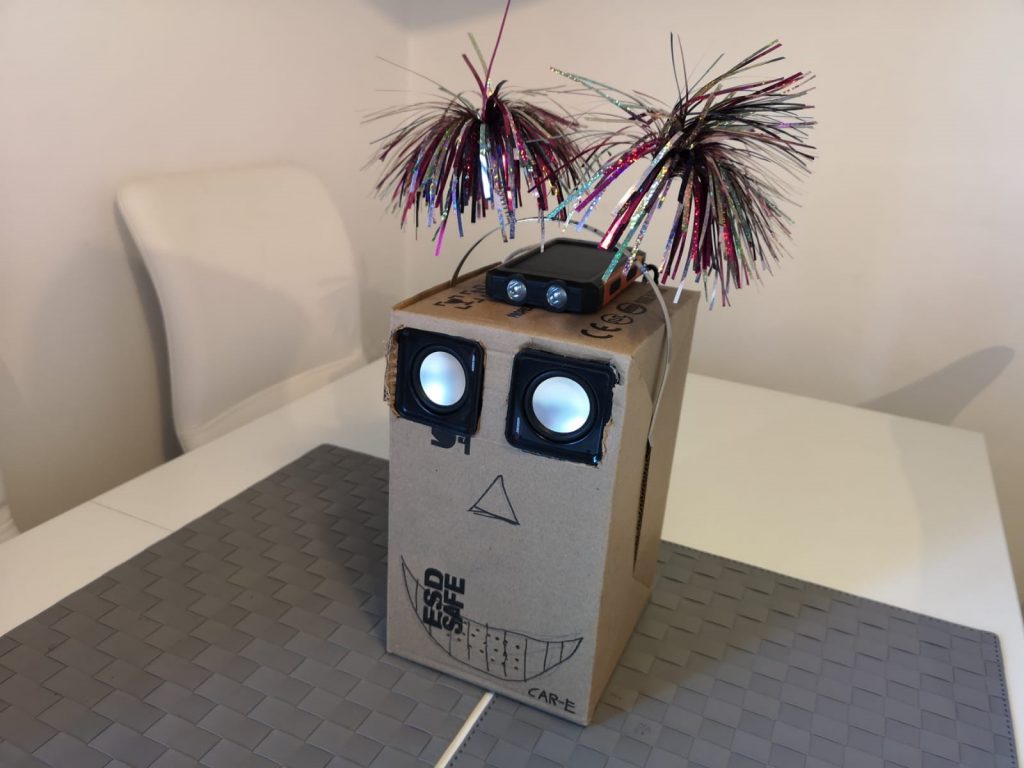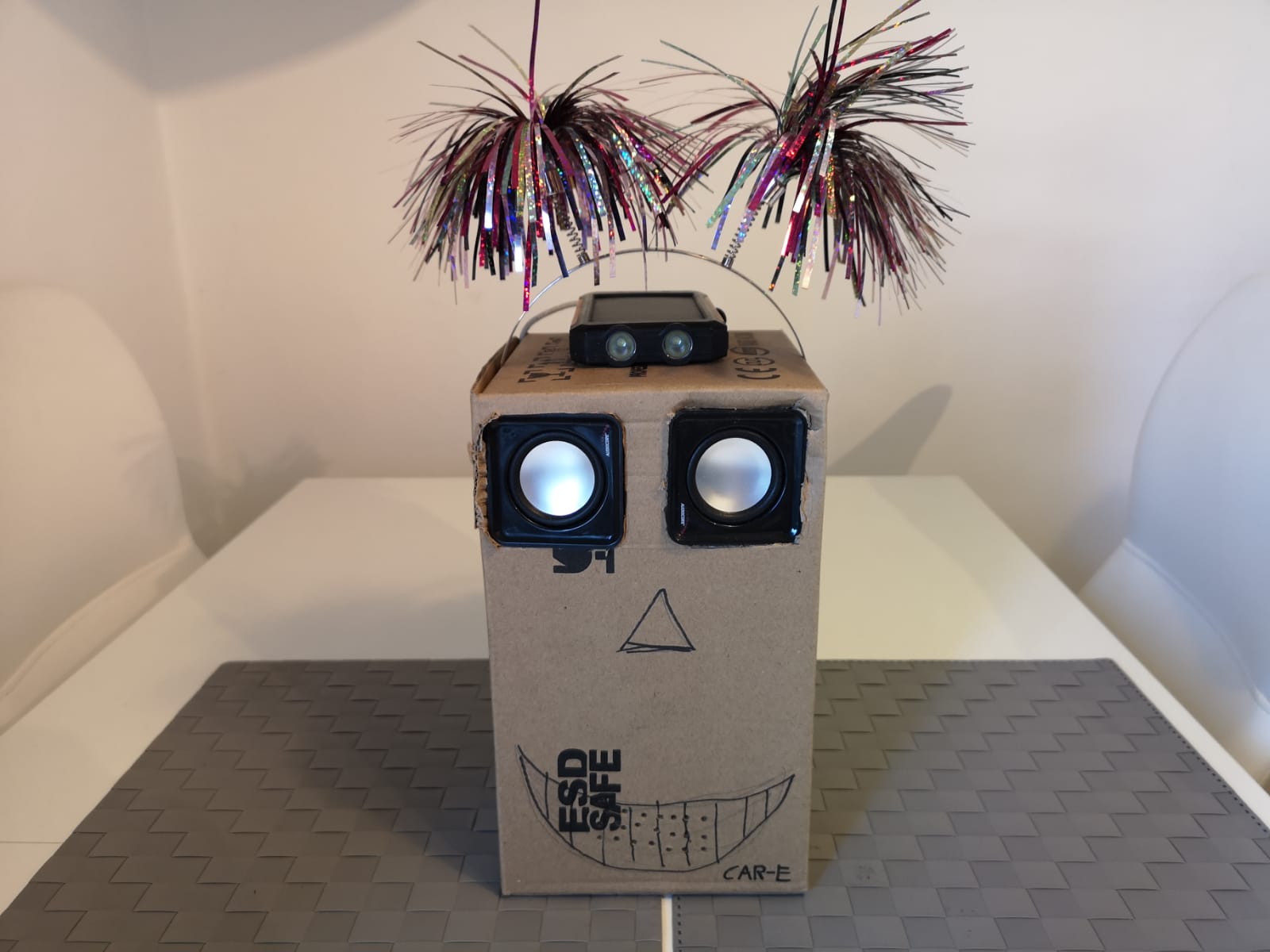Looking over the past decades and into the future, we are witnessing a global shift towards an increasingly ageing population. Alongside this demographic shift, there has also been the challenge to provide adequate care facilities to ensure the well-being of the elderly. This also explains the rising number of home nursing and home-care, which can be more cost-effective and monitored remotely by the nursing personnel.
At the same time, there have been numerous advantages in the field of natural language understanding. This project focuses on a patient-centred solution which intents to tackle the challenges of social isolation and support healthy and active ageing with the help of an interactive voice agent.
We developed an open-source solution running on a raspberry pi named Car-E, which is controlled verbally and understands the users in English and German. The idea behind Car-E is a simple-to-use device to support the life of the older generation. At the moment there are two different skills (“Reminder” and “Covid-19”) developed and testet among 30 persons.

Evaluation of the Prototype
Due to the current Corona situation and limited testing possibilities, the user surveys and tests could not be carried out as planned. The actual plan to test Car-E in an acute setting at the Herz-Jesu-Krankenhaus in Vienna could not be implemented.
After the evaluation it can be said that developing a speech recognition engine for the elderly is rather complex. There is still a lot of fear and respect towards innovative approaches from the elderly. However, it seems that more women would recommend Car-E than men would.
The “Reminder” skill gained a better feedback than the “Covid-19” skill. This might be the case because Covid-19 is in the media all day long and therefore the interest is not as high as it was expected in spring 2020, when the team developed this speech tree.
Next Steps
- increasing the size of sample group to representative size
- implementation of feedback from user-tests to increase usabilty
- possible implementation of dialect-specific speech-trees
A project at the St. Pölten University of Applied Sciences Master Program Digital Healthcare.
Coach: Andreas Jakl, MSc.




